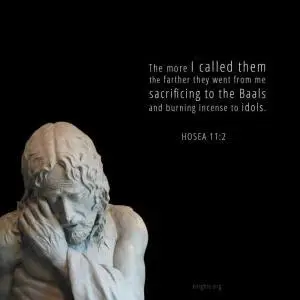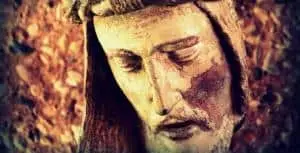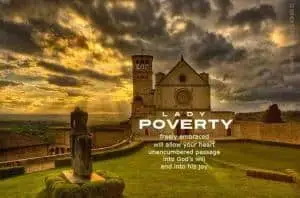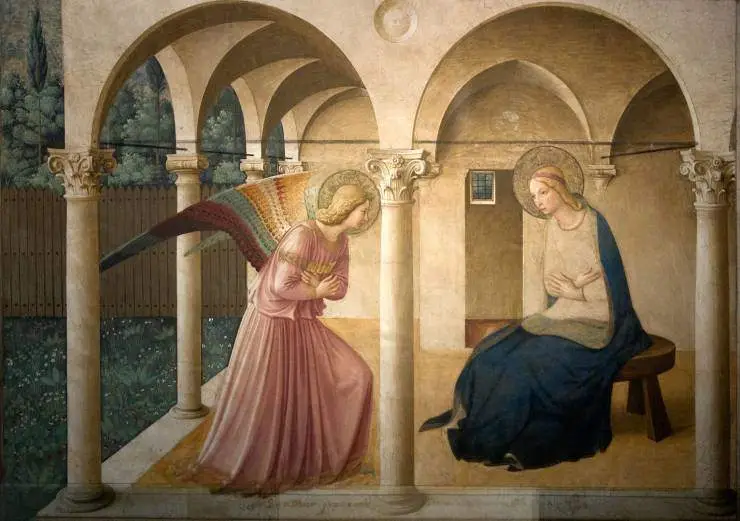
With a single ‘fiat’ Mary fulfills Abraham’s journey of faith. It was Mary’s word that allowed the Eternal Word to walk among us and to speak to each one of us. So what does that mean to us today? Is it enough to call ourselves children of Abraham, children of the Blessed Virgin Mary, or even the children of God?
Through our baptism sanctifying grace enters our soul for the first time. But it is like leaven that needs to act upon something, something we must give it — the wheat of works and faith. St. John the Baptist’s great warning still reverberates today. We are not to rest on the stones of other people’s great faith. He challenges us to avoid the presumption of an ‘inherited faith alone’.
The first baby step towards our own unique fiat of faith, comes from a dialog and exchange; our word with The Word, as it did for Abraham and the Virgin Mary. The step is not a contraction of any particular leg muscle but rather a pulsing of the heart muscle that allows that profound soul-deep utterance to leave our lips — thy will be done. That moment of total surrender and absolute trust of ‘I’ in ‘Thou’ despite the lingering darkness of unknowing makes for a true ‘fiat’. And that fiat then transforms the fear of unknowing into a precious thing, a security with insecurity.
Blessed Pope John Paul in his Jubilee Year homily to Nazareth encourages us to go deeper into the mystery of the fiat. He comments…
“It is Mary above all others who can teach us what it means to live the faith of “our father”. In many ways, Mary is clearly different from Abraham; but in deeper ways “the friend of God” (cf. Is 41:8) and the young woman of Nazareth are very alike.
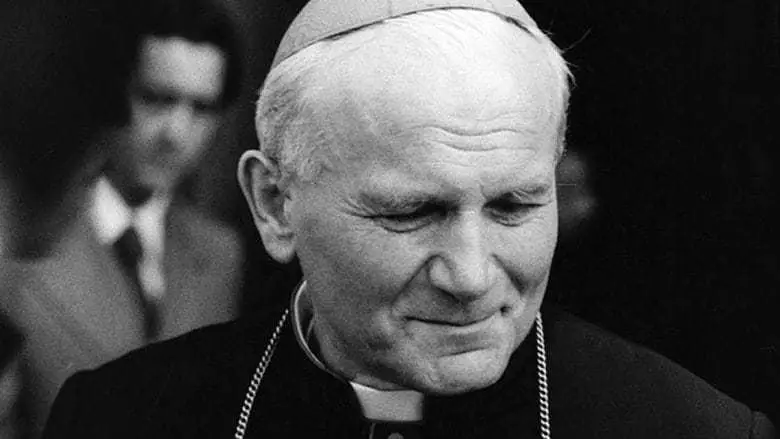
Both receive a wonderful promise from God. Abraham was to be the father of a son, from whom there would come a great nation. Mary is to be the Mother of a Son who would be the Messiah, the Anointed One…
For both Abraham and Mary, the divine promise comes as something completely unexpected. God disrupts the daily course of their lives, overturning its settled rhythms and conventional expectations. For both Abraham and Mary, the promise seems impossible. Abraham’s wife Sarah was barren, and Mary is not yet married: “How can this come about”, she asks, “since I am a virgin?” (Lk 1:34).
Like Abraham, Mary is asked to say yes to something that has never happened before. Sarah is the first in the line of barren wives in the Bible who conceive by God’s power, just as Elizabeth will be the last. Gabriel speaks of Elizabeth to reassure Mary: “Know this too: your kinswoman Elizabeth has, in her old age, herself conceived a son” (Lk 1:36).
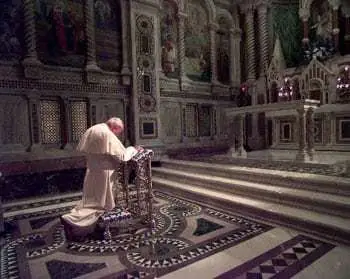
In order to penetrate further into the mystery, let us look back to the moment of Abraham’s journey when he received the promise. It was when he welcomed to his home three mysterious guests (cf. Gen 18:1-15), and offered them the adoration due to God: tres vidit et unum adoravit. That mysterious encounter foreshadows the Annunciation, when Mary is powerfully drawn into communion with the Father, the Son and the Holy Spirit. Through the fiat that Mary uttered in Nazareth, the Incarnation became the wondrous fulfilment of Abraham’s encounter with God. So, following in the footsteps of Abraham, we have come to Nazareth to sing the praises of the woman “through whom the light rose over the earth” (Hymn Ave Regina Caelorum).
But we have also come to plead with her. What do we, pilgrims on our way into the Third Christian Millennium, ask of the Mother of God? Here in the town which Pope Paul VI, when he visited Nazareth, called “the school of the Gospel”, where “we learn to look at and to listen to, to ponder and to penetrate the deep and mysterious meaning of the very simple, very humble and very beautiful appearing of the Son of God” (Address in Nazareth, 5 January 1964), I pray, first, for a great renewal of faith in all the children of the Church. A deep renewal of faith: not just as a general attitude of life, but as a conscious and courageous profession of the Creed: “Et incarnatus est de Spiritu Sancto ex Maria Virgine, et homo factus est.”
In Nazareth, where Jesus “grew in wisdom and age and grace before God and men” (Lk 2:52), I ask the Holy Family to inspire all Christians to defend the family against so many present-day threats to its nature, its stability and its mission. To the Holy Family I entrust the efforts of Christians and of all people of good will to defend life and to promote respect for the dignity of every human being.
To Mary, the Theotókos, the great Mother of God, I consecrate the families of the Holy Land, the families of the world.
In Nazareth where Jesus began his public ministry, I ask Mary to help the Church everywhere to preach the “good news” to the poor, as he did (cf. Lk 4:18). In this “year of the Lord’s favour”, I ask her to teach us the way of humble and joyful obedience to the Gospel in the service of our brothers and sisters, without preferences and without prejudices.
“O Mother of the Word Incarnate, despise not my petitions, but in your mercy hear and answer me. Amen” (Memorare).
—


